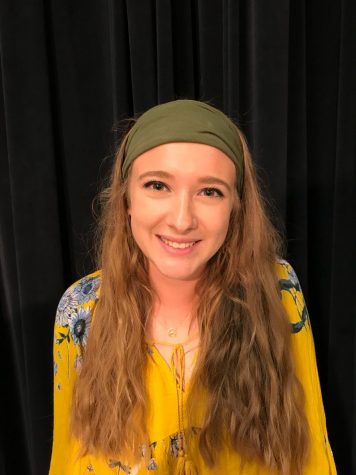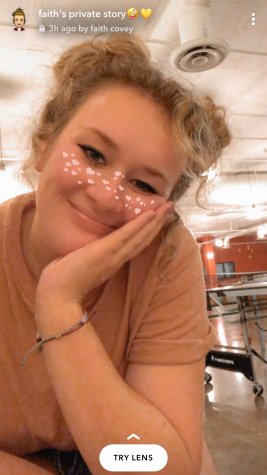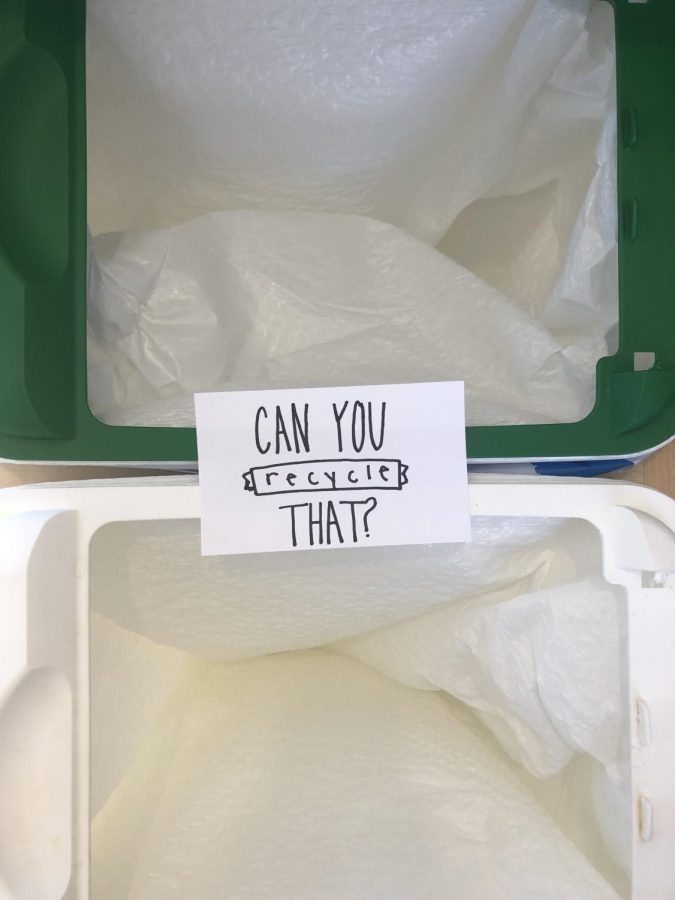Don’t Be Trashy: Recycle
Every day, millions of pounds of trash are carried away to landfills in the United States and around the world. While recycling has picked up popularity in recent years, the concept of knowing what can and cannot be recycled remains an issue.
“So many people either have not been educated about [recycling], it’s not offered at their home so they don’t think about it, or they just don’t care,” biology and zoology teacher Misty Black said.
Liberty North has only been a school for nine years, but recycling has been an important program from the very beginning.
“I’ve always recycled at home. I helped my neighborhood get started with their trash/recycling program (it’s a brand new neighborhood with only 40 houses and we were the third house in there). So naturally, when I helped open LNHS, I had the resources and the will to start it for our school too. I even had my students the first few years and partnered with the Gateway program to go around the school and dump the bins that I was able to get for each classroom,” Black said.
Recently, Liberty North has been fined for improper recycling practices. While the school promotes recycling, it does not educate on how to recycle correctly.
“Due to trash, trash bags themselves full of recycling materials, or wrong materials being recycled creates more work for the recycling company. It’s not their job to sort trash and recycling, it’s their job to sort recycling materials into different categories. If we cannot fix this issue, we may just have to go to simply paper and cardboard only (since we are a school and that’s what we use most),” Black said.
The major issue with recycling at Liberty North revolves around trash and waste ending up in the recycle. There are only a certain number of things that can be recycled through the local recycling company.
“Things that can be recycled are paper, cardboard, aluminum cans, and plastics (with the triangle recycle symbol & a number) such as bottles, QT cups/lids, containers that have been emptied and rinsed out. Glass, styrofoam blocks, and electronics can also be recycled but not at our location. Things that can not be recycled are styrofoam cups (coffee cups), straws, plastic cutlery, paper towels, kleenex, food wrappers (chips, granola, candy, etc.), or anything that has food/liquid in it,” Black said.
Most plastic products have a small recycle symbol on the bottom of them with a number. This number indicates what type of plastic the object is and where it can be recycled. Most plastics with numbers one, two, five, six, and seven can be recycled curbside, while plastics with numbers three and four cannot.
“[Recycling has] been around for a while now and people know they should, but are getting too lazy. It’s an easy way to reduce our fossil fuels, keep items out of our landfills, keep our oceans clean, and provide jobs,” Black said.
For the materials that cannot be recycled curbside, there are other options. Many grocery stores have a place for recycling plastic shopping bags. Donating clothes to and shopping at thrift stores is another way to prevent items from ending up in landfills.
“I like to shop at thrift stores because it’s fun, it’s cheap, it’s unique, and it’s good for the environment. Instead of these clothes ending up in a landfill somewhere, they can be worn again by someone new,” junior Hannah Tritz said.
To fix the recycling problem at Liberty North, the most important thing to do is raise student awareness.
“It’s an easy thing to do. Our entire district recycles, businesses and homes recycle, there are no excuses! Catch a friend throwing something away that can be recycled or vice versa and making it known that they should correct that will go a long way and for others around them,” Black said.
For more information on what can and cannot be recycled in Liberty, click here.




